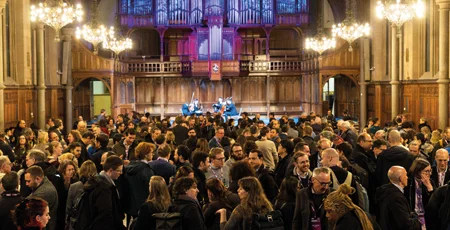Path to net zero
The Manchester Festival of Climate Action considered the challenges of climate change.
Professor Frank Geels’ presentation focused on the process of responding to climate change.
In particular he stressed that low carbon transitions do not start from scratch and that transitions can typically take up to 30, 40 or even 50 years. And while setting targets is important, he stressed that implementation-oriented policymaking must be a key part of the drive to decarbonise.
“Initially you have a period of experimentation, followed by stabilisation in small market niches, followed by diffusion into mainstream markets, followed by overthrow and reconfiguration. However low carbon transitions are different to past transitions in that it is not just one single technology that needs to break through. Each system – whether electricity, mobility, or heat – has multiple innovations.”
Electricity
He said that decarbonising electricity production had been a success story for the UK, which has cut greenhouse gas emissions by 72 per cent since 1990. Three major technologies have driven this change, namely the shift from coal to gas, the growth of renewables (wind, solar, and bio-power), and electricity demand reduction resulting from energy efficiency improvements in appliances.
“The key here is that these technologies were supported by increasing state intervention, such as policies to phase out coal and traditional light bulbs, financial support for renewables deployment, and the carbon floor price, which taxes coal. So we have seen a strong shift from a hands-off to an interventionist approach through a raft of targets, financial subsidies and regulations. Policymakers have really shaped markets.”
Low carbon transitions are different to past transitions in that it is not just one single technology that needs to break through.
Mobility
With mobility he said the situation was more complicated. “Car use is deeply embedded in our lifestyles and infrastructure, and continues to grow. Although auto-mobility increased by 10 per cent between 2007 and 2019, emissions from passenger cars have fallen by 12 per cent in that period. Drivers of emission reductions were more fuel-efficient vehicles, the doubling in rail travel, increasing use of biofuels, and the rise of electric vehicles (EVs) which in 2020 accounted for more than 20 per cent of all new car sales.
"Again, policy has been key in driving this, focusing particularly on EV subsidies for buyers, investment in charging infrastructure and support for EV plants, and legislation to end of the sale of new petrol and diesel cars by 2030."
But he said that on the whole the government had taken a relatively ‘hands-off’ approach, leaving it to the market to decide.
Heat and buildings
Emissions from buildings in the UK have gradually decreased since the 1990s due to incremental measures such as double glazing, loft insulation, cavity wall insulation, and energy-efficient boilers. However he says in recent years they have begun to creep up again, due to weakening policies.
“Back in 2006 there was a zero carbon homes policy, but it was very ambitious in terms of its timeframe and volume housebuilders lobbied against it and by 2015 it was scrapped. Then we had the 2013 Green Deal flagship policy which was an absolute disaster and led to a drop in retrofits.
"No substantive policy has replaced it in the building sector. What is particularly important is that there are no dedicated agencies driving change in the heat and buildings domain and the coherence and strength of policies has decreased since the mid-2010s."
Innovation
In summary, Professor Geels said one of the reasons for success in reducing electricity emissions was that many radical innovations were implemented. Mobility has seen lots of innovation too, but only a few new technologies have been widely adopted and the number of more radical innovations remains very small. Meanwhile in the heat sector there are a lot of radical innovations, but only a few have been used at scale.
“There are many opportunities, but lack of policy is one of the main reasons why change has not been very transformative so far. All this serves to prove the importance of robust policymaking in driving the UK’s net zero ambitions.”
"Lack of policy is one of the main reasons why change has not been very transformative so far. All this serves to prove the importance of robust policymaking in driving the UK’s net zero ambitions."





